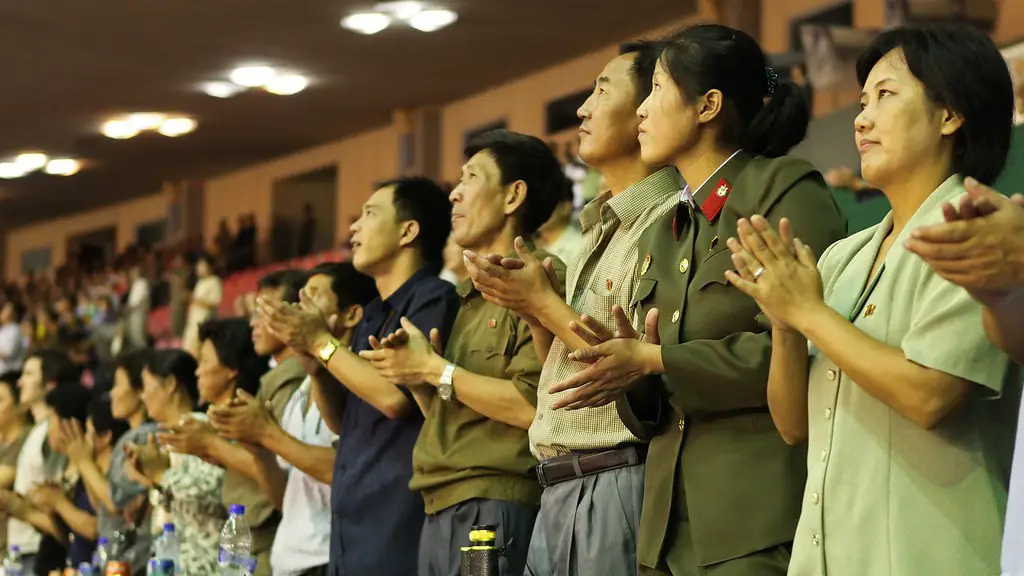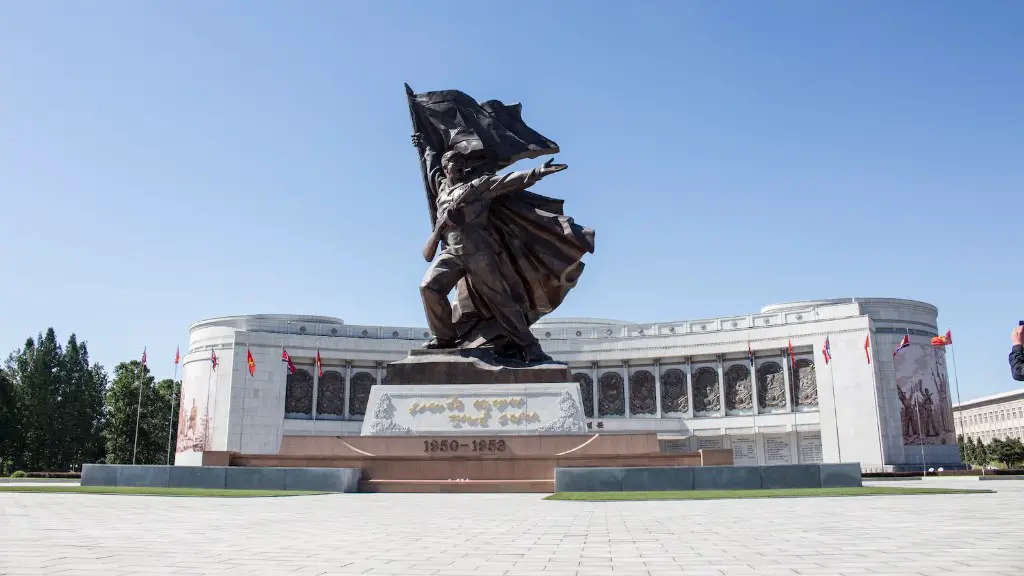Background
North Korea, officially the Democratic People’s Republic of Korea, is a mysterious, isolated state located in East Asia, in the northern part of the Korean Peninsula. It is a single-party socialist state governed by the Workers’ Party of Korea, and the world’s most militarized nation. North Korea’s economy is largely closed and heavily regulated, with few economic freedoms. It is also one of the most heavily sanctioned countries in the world. Over the years, North Korea has repeatedly ignored international rules and agreements, including Security Council resolutions regarding its nuclear weapons program.
Who Are the Main Players?
The main players in the effort to stop North Korea are the United States and the United Nations. The United States has been the leading force in trying to pressure North Korea to halt its nuclear weapons program, impose sanctions, and negotiate for a denuclearized Korean Peninsula. The UN Security Council, in particular, has imposed multiple rounds of sanctions on North Korea and has expressed “serious concern” over the country’s nuclear weapons program.
What Options Are There?
There are several options for halting North Korea’s nuclear weapons program. Sanctions, negotiations, and deterrence have all been discussed. The United States and other countries have imposed multiple rounds of sanctions on the country, aimed at curbing the country’s nuclear ambitions. These have had limited success, and some argue that they have only served to further isolate the nation and make it more reckless. Negotiations and diplomacy have also been attempted, with mixed results. Finally, the United States has also pursued a policy of deterrence, using the promise of military action as a way to deter North Korea from further aggression.
Analysis and Insight
It is clear that North Korea is a grave threat to international peace and security, and that it must be stopped. However, it is also clear that sanctions and negotiations have so far been unsuccessful. The United States and the UN have tried to apply pressure on the country, but the results have been limited at best. What is needed is a more comprehensive approach that includes both sanctions and negotiations, as well as strategies such as deterrence and strengthening international alliances. At the same time, it is important to recognize that North Korea is a highly isolated state and that it will be difficult to find a solution due to domestic political considerations.
International Relationships
International relationships play a key role in any effort to stop North Korea. Strengthening ties between nations is essential for success, as it allows countries to coordinate and cooperate on the issue. China, the United States, South Korea, and Japan are key players in the issue, and creating stronger relationships between these countries could help to reduce tensions and create a more effective strategy for dealing with North Korea. Additionally, the United States could form stronger ties with other regional powers such as Russia, in order to ensure that all sides are ready and willing to cooperate in an effort to end North Korea’s nuclear program.
Economic Impact
The economic impact of North Korea’s weapons program must also be taken into consideration when attempting to find a solution. North Korea’s weapons program is a drain on the country’s already weak economy, as well as a strain on the international community. For example, UN Security Council sanctions have had a significant economic impact on North Korea, as they have significantly reduced the country’s ability to import and export goods, as well as to access funds from the international banking system. This has led to the growing poverty and malnutrition in North Korea, which must be addressed if the country is to be stopped.
Domestic Politics
Finally, domestic politics in North Korea play an important role in any effort to halt the country’s nuclear weapons program. North Korean leaders are unwilling to make substantial changes to existing policies, as they believe that doing so would weaken the regime and their own political positions. Additionally, they view their weapons program as a source of national pride and reassurance in the face of international isolation. As such, any attempt to resolve the issue must take into account the domestic politics of the country, in order to ensure that the average North Korean can gain a sense of security, while also allowing the country to re-enter the global community.
Regional Diplomacy
Developing an effective diplomatic strategy between North Korea and its neighbors is essential. North Korea is surrounded by powerful nations, and any agreement between it and these countries does not come at a low cost. North Korea must be willing to compromise on its nuclear program in order for a diplomatic solution to be reached. This could entail establishing political and economic ties between North Korea and its neighbors, as well as strengthening the global community’s commitment to disarmament. Additionally, it could involve providing North Korea with economic aid, in order to ensure that its citizens can lead a better quality of life.
Increase Cooperation
Finally, in order for North Korea to be stopped, we must increase cooperation between all sides of the issue. Currently, the United States and its allies, as well as China and Russia, are divided on the issue. All sides must work together, with a spirit of cooperation and understanding, in order to find a way to resolve the crisis. This includes reaching out to North Korea and seeking to understand the country’s motivations and what security it needs in order to comply with international agreements. The more countries that can be brought together to coordinate solutions, the more successful the effort will be.


